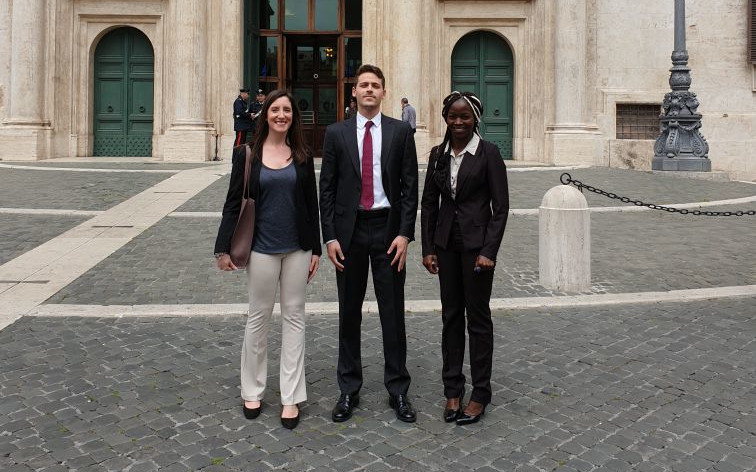On Monday, 13 May 2019, Americans for Democracy & Human Rights in Bahrain (ADHRB) testified in front of the Permanent Committee of Human Rights, a subcommittee in the Foreign Affairs Commission of the Italian Parliament’s lower house. In the testimony, ADHRB highlighted the Bahraini government’s escalation of abuses since 2016, its targeting of human rights defenders, the poor prison conditions in detention facilities, and the use of capital punishment.
At the outset of the hearing, ADHRB provided a general overview of the deteriorating human rights situation in Bahrain. The remarks focused in particular on the increased targeting of human rights defenders and political opposition activists, the weaponization of citizenship and nationality privileges, and the use of the death penalty. Among the most significant developments in Bahrain since 2016 are the re-empowerment of the National Security Agency, which functions as the secret police, in January 2017; the re-empowerment of military courts to try civilians during peace time in 2017; the dissolution of Al Wefaq, a Shia political society and Bahrain’s largest political opposition society, in July 2016; as well as the dissolution of the National Democratic Action Society, a secular leftist opposition political society, in March 2017.
Remarks also addressed the Bahraini government’s targeting of human rights defenders and political opposition activists. Among those whose cases are particularly concerning are Abdulhadi AlKhawaja, Nabeel Rajab, and Sheikh Ali Salman. AlKhawaja, a prominent human rights defender, was arrested in 2011 due to his participation and leadership in the mass peaceful protest movement. AlKhawaja was tortured and sentenced to life in prison. Rajab is also a prominent human rights defender. He is currently serving a five-year prison sentence on free expression charges stemming from tweets criticizing Saudi Arabia’s involvement in the war in Yemen and torture in Bahrain’s Jau Prison. Sheikh Ali Salman is the former secretary general of Al Wefaq. He was arrested in 2014 and later sentenced to four years in prison, but as his sentence was coming to an end in November 2017, authorities brought new, politically-motivated charges against him of espionage. As a result, he was sentenced to life in prison on 5 November 2018.
ADHRB’s remarks also focused on the poor prison conditions detainees face in Bahraini detention facilities. The poor conditions, including over-crowding and poor sanitation, in particular affect prisoners with pre-existing health conditions. In many cases, political prisoners suffering from health problems are not allowed to receive adequate health care. Jau Prison, Bahrain’s main detention facility, which houses political leaders, human rights defenders, and other prisoners of conscience, notoriously has inhumane conditions. Prisoners in Jau suffer from a lack of basic amenities and services, partially due to severe overcrowding.
Remarks also focused on Bahrain’s use of capital punishment and the rejection of Ali AlArab and Ahmed AlMalali’s final appeal on 6 May 2019. With the upholding of their sentences, their cases go to the King, who can either ratify or reject their sentences. They now join six other men on death row who are at imminent risk of execution, bringing the total at imminent risk up to eight. AlArab and AlMalali had been tortured into confessing to terror crimes they could not commit and both men were also denationalized, although their citizenship was reinstated on 27 April 2019 by royal order.
In the testimony, ADHRB called on the Italian government to take a stronger stance towards protecting and promoting human rights in Bahrain by following the European Union (EU) Guidelines on Human Rights Defenders, a document that sets out how governments and embassies should support human rights defenders. Among the guidelines is the need to consult and share information with defenders, receive them at the embassy, giving visible recognition to defenders through visits and invitations, among other ways, and by attending and observing trials of defenders.
By ensuring the Italian delegations and policy are in line with the EU Guidelines, the Italian government will be in a stronger position vis-à-vis human rights, and it will be able to demonstrate greater leadership on promoting and protecting human rights in Bahrain.
Find a copy of this statement in Italian here.





